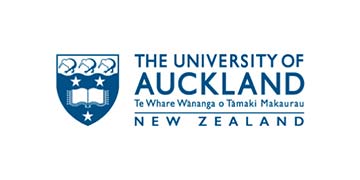University of Auckland selects students to tackle global challenges with Future 17 projects
The University of Auckland’s Business School has a reputation for experiential learning and non-traditional content delivery and that’s put it in good health to be part of a new course.
The University will take part in the QS Future 17 educational initiative from January 2023, a programme created by QS World Merit, the charity arm of Quacquarelli Symonds (QS). QS Future 17 is led by Exeter University in the UK, which first offered it in 2022 and is now broadening its global reach. Other universities taking part include the Chinese University of Hong Kong, University of São Paulo, Brazil, and Stellenbosch in South Africa.
Students from all over the world collaborate on interdisciplinary projects related to the 17 Sustainable Development Goals. In 2023, 30 third-year students from across faculties at the University of Auckland will take part in the credit-bearing course, after a selection process.
The academic lead on the Auckland working group for Future 17 is Andrew Patterson, associate dean in the Faculty of Business and Economics, and Professional Teaching Fellow in Management and International Business. An award-winning innovative educator, he has experience in developing and delivering multidisciplinary course content. He led the design of Business 202, an interdisciplinary compulsory stage two course that has been shortlisted for the Wharton-QS Reimagine Education Award in the Learning Assessment category.
The non-traditional Business 202 assessment structure develops students’ professional skills in a way they might use them in the modern workforce.
“We use AI, we have peer reviews, we have a virtual reality presentation and students create infographics,” explains Andrew. “That kind of course is very much in the mindset of what QS is doing with Future 17. Our 202 modules are also about competing globally, the future of work, and issues related to climate change. The essence is to address global grand challenges.”
I’m starting to see an emergence of SDG values coming through in our students. Given a business project, many self-select something that’s not purely profit-driven, such as a social enterprise.
Andrew Patterson, associate dean, Faculty of Business and Economics
University of Auckland
For Future 17, students tap into the expertise and teaching power of experts around the globe, including five academics from Auckland.
“I can see why the University grabbed the chance to be involved in this. It fits well with the University’s values and the direction it’s taking.”
Based on his experiences with students in Business, he knows plenty will fit the bill.
“I’m starting to see an emergence of SDG values coming through in our students. Given a business project, many self-select something that’s not purely profit-driven, such as a social enterprise that can make an impact. I view that as a really positive thing.”
He says the educator’s role is not to stand at the front of a lecture theatre and tell students what to think. “We’re growing future leaders and helping them develop a way to think, and to collaborate and work on global issues.”
He says Future 17 and the likes of Business 202, which was taken by around 1,500 students this year, are important in the context of the Curriculum Framework Transformation. “It’s all about the push towards transdisciplinarity and upskilling to incorporate relational learning.”
The selection process for students is being undertaken in December and they will then enrol to complete the course through Exeter.
“They have a four-week online induction to get to know others on the programme and the people from the other partner universities,” says Andrew. “In February, their projects begin.”
Each team of six receives a project card summarising the challenge they’ll attend to.
“An example this year was a project called Soap for Hope. With millions of people living in slums with no access to soap, they launched a programme to recycle soap discarded from hotels and distribute it to people in need, with all the logistics that entailed.”
It’s a great way of getting real-world experience while still studying, and hopefully making some sort of impact.
Andrew Patterson, School of Business
University of Auckland
Exeter works with QS to organise teams, based on an indication from students about the sorts of things they’re interested in. The programme can also involve New Zealand companies and organisations keen to have students help solve their problems or work with them to find solutions.
“It’s a great way of getting real-world experience while still studying, and hopefully making some sort of impact,” says Andrew.
“They can develop cultural competencies and work effectively in a cross-cultural collaborative environment, across different time zones, working with a real-world business partner. One of the key things is to figure out how they can work with people from a completely different academic discipline too, for example Business and Science. That is a really important skill.”
While the University is starting small with 30 students involved, Andrew says the steering committee, led by Vice-Chancellor Professor Dawn Freshwater, is hoping to increase the number of students taking part as the programme goes on.

